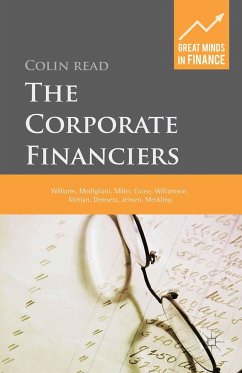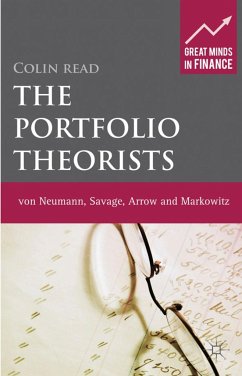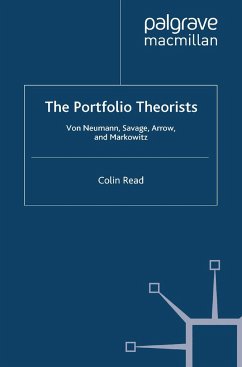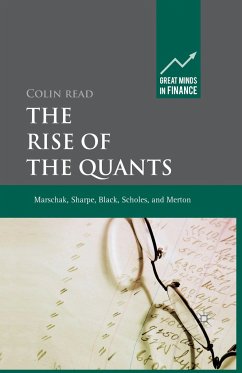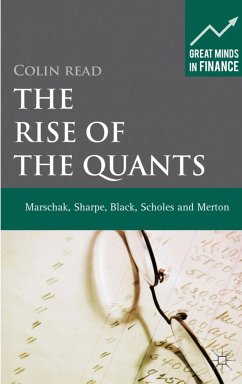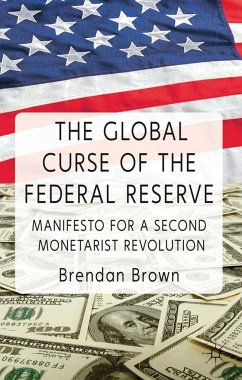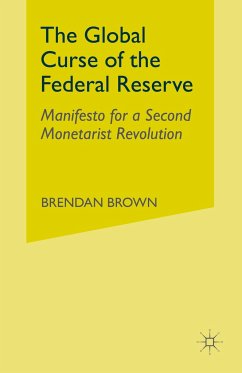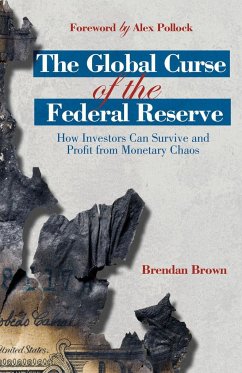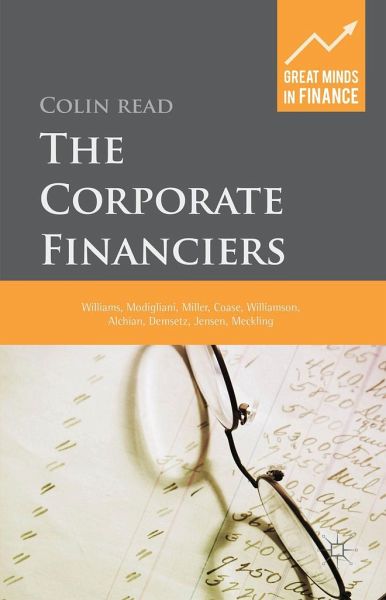
The Corporate Financiers
Williams, Modigliani, Miller, Coase, Williamson, Alchian, Demsetz, Jensen, Meckling
Versandkostenfrei!
Versandfertig in 6-10 Tagen
76,99 €
inkl. MwSt.
Weitere Ausgaben:

PAYBACK Punkte
38 °P sammeln!
The Corporate Financiers is the fifth book in aseries of discussions about the great minds in the history and theory offinance. While the series addresses the contributions of scholars in ourunderstanding of modern finance, this volume presents the ways in which acorporation creates value.Morethan two centuries ago, Adam Smith explained the concept of division of laborand the efficiencies of specialization as the mechanism in which a firm createsvalue. However, corporations now find themselves outsourcing some processes toother firms as an alternative way to create value. There must be other e...
The Corporate Financiers is the fifth book in aseries of discussions about the great minds in the history and theory offinance. While the series addresses the contributions of scholars in ourunderstanding of modern finance, this volume presents the ways in which acorporation creates value.
Morethan two centuries ago, Adam Smith explained the concept of division of laborand the efficiencies of specialization as the mechanism in which a firm createsvalue. However, corporations now find themselves outsourcing some processes toother firms as an alternative way to create value. There must be other economicforces at work than simply the internal efficiencies of a firm. We begin bydescribing the work of a rather obscure scholar named John Burr Williams who demonstratedin 1938 how the earnings of a firm are capitalized into corporate value throughits stock price. We then delve into the inner workings of the moderncorporation by describing the contributions of Nobel Memorial Prize winnersRonald Coase and Oliver Williamson. More than any others, these scholarscreated a renewed appreciation for our understanding of the institutionaldetail of the modern corporation in reducing costs and increasing efficiency.
WhileCoase and Williamson provided meaningful descriptions of the advantage of acorporation, they did not offer prescriptions for the avenues the corporationcan create more value in an era when new technologies make outsourcing andtelecommuting increasingly possible. Michael Jensen and William Mecklingdescribe in greater detail the nature of the implicit contracts a corporationemploys, and recommend remedies to various problems that arise when the goalsof the corporation are not aligned with the incentives of its agents. We alsodescribe the further nuances to these relationships as offered by Armen Alchianand Harold Demsetz. We treat the lives of these extraordinary individuals wholooked at a very familiar problem in a sufficiently novel light to change theway all look at corporations ever since. That is the test of genius.
Morethan two centuries ago, Adam Smith explained the concept of division of laborand the efficiencies of specialization as the mechanism in which a firm createsvalue. However, corporations now find themselves outsourcing some processes toother firms as an alternative way to create value. There must be other economicforces at work than simply the internal efficiencies of a firm. We begin bydescribing the work of a rather obscure scholar named John Burr Williams who demonstratedin 1938 how the earnings of a firm are capitalized into corporate value throughits stock price. We then delve into the inner workings of the moderncorporation by describing the contributions of Nobel Memorial Prize winnersRonald Coase and Oliver Williamson. More than any others, these scholarscreated a renewed appreciation for our understanding of the institutionaldetail of the modern corporation in reducing costs and increasing efficiency.
WhileCoase and Williamson provided meaningful descriptions of the advantage of acorporation, they did not offer prescriptions for the avenues the corporationcan create more value in an era when new technologies make outsourcing andtelecommuting increasingly possible. Michael Jensen and William Mecklingdescribe in greater detail the nature of the implicit contracts a corporationemploys, and recommend remedies to various problems that arise when the goalsof the corporation are not aligned with the incentives of its agents. We alsodescribe the further nuances to these relationships as offered by Armen Alchianand Harold Demsetz. We treat the lives of these extraordinary individuals wholooked at a very familiar problem in a sufficiently novel light to change theway all look at corporations ever since. That is the test of genius.





